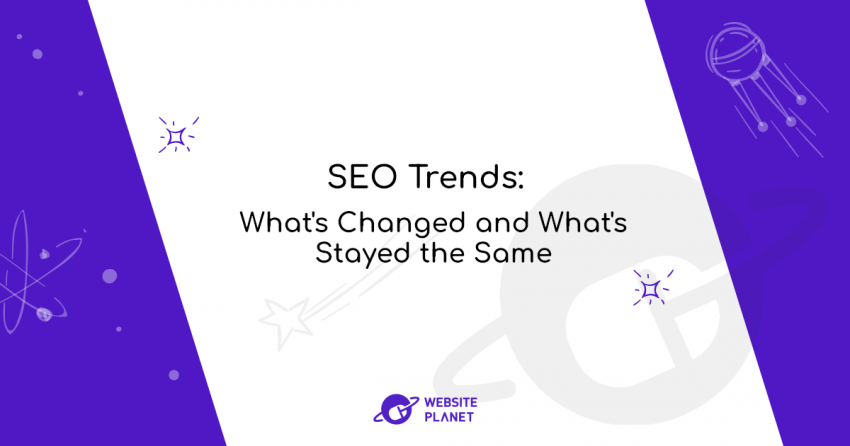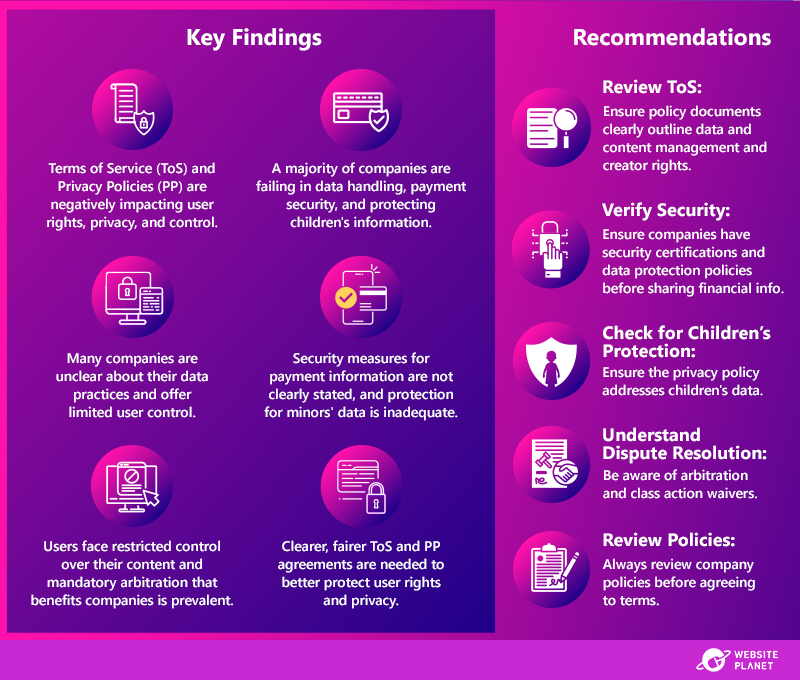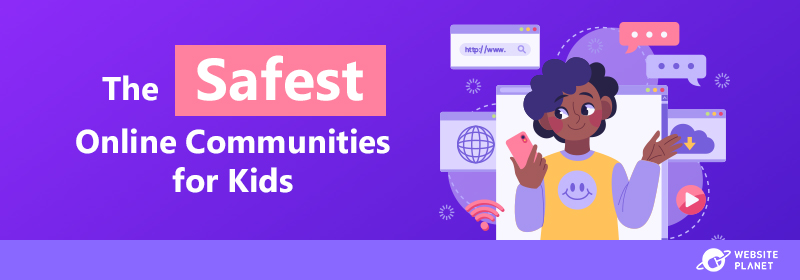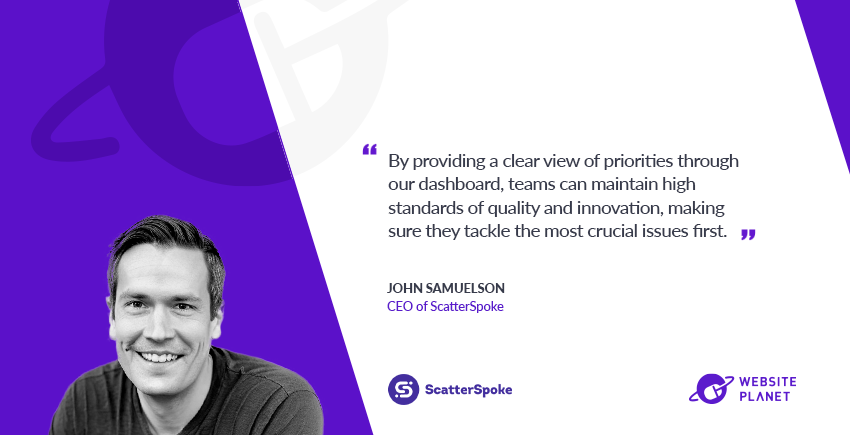What to Expect
Okay, let’s set some ground rules. First, we’re here to learn 4 main things:- How to avoid being unintentionally racist online.
- How to shut down racism posted to your site, forum, Facebook group, etc.
- How to help shut down racism anywhere you see it occur (on platforms you don’t own, control, or influence).
- Where to look for more information on systemic racism, and what else you can do about it.
- Regular “Racism” – This is what I call the “old definition” where if you mistreat others — or even think badly of them — for the immutable characteristics of their race, then you are a racist. By this definition, literally anyone can be racist, no matter their station in life or position in society.This is the definition I go with, though it must be recognized that while minorities can certainly be racist in their views and actions, they are much more likely to be the victims of racist power structures.
- Institutional or Structural Racism – This is a modern understanding of the true nature of racism. To be racist, you need to have some form of power over others, in addition to everything in the first definition. This is described in terms of power dynamics, dominant groups, racial hierarchies, and majorities and minorities.
Racism is a Worldwide Issue
The first step to dealing with racism is recognizing it in the first place. If you consume mostly Western media, you might be forgiven for thinking it’s a White vs. Black thing, but it’s so much bigger than that. Racism is the global status quo, and it would be ridiculous to focus solely on racism in developed Western nations. And while the focus of this essay is on the structures of online racism and white supremacy, historical context is essential. Racism didn’t just appear out of nowhere when TV or the internet was invented. To understand how we got here, we need to look back through history and consider the legacy of imperialism, slavery, oppression, and mass murder that shaped the modern world.Europe and North America
Let’s say the quiet part out loud. This section is about, as comedian Nish Kumar would say, “Whiiiiite Peeeooopllllle!” (You have to sing it.) The countries of North America are built on centuries of genocide and slavery that wiped out 10s of millions of people (maybe even 100s of millions) on both sides of the Atlantic. Meanwhile, Western Europe’s wealth, stability, and prestige wouldn’t exist if European powers hadn’t so successfully and violently subjugated pretty much the entire planet. Right up to the 1970s, some European countries were violently oppressing independence movements in their overseas colonies while promoting human rights, democracy, and basic decency at home. Between 9-10 million Africans were kidnapped and brought to the Americas. And this doesn’t account for the 10s of millions who died under European rule in Africa, nor the 2 million who died on the Middle Passage between Africa and the Americas and were simply dumped in the ocean. At the same time, over 9 million Indigenous Americans and Canadians were murdered, while the survivors were driven from their homes and forced to live on barren reservations. As a result, the descendants of both groups have been suffering ever since. Race was basically invented to justify the violence and depravity of the slave trade and numerous genocides committed by European settlers in various parts of the world. “White” people were at the top, given their superior place in civilization by God. Everyone else was seen as almost sub-human — basically, animals, no different to cattle or wild game. So, that’s how white people treated anyone deemed Africans and Indigenous peoples, like cattle to be traded and wild game to be slaughtered (often, for fun). Meanwhile, every society in Europe included minority groups that have been marginalized, oppressed, and persecuted based on racial or ethnic grounds. For example, the word “slave” is derived from Slav — says a lot about how Slavic people from Eastern Europe have been treated over the centuries. And don’t even get me started on how the Jewish people were treated in Europe — long before the Nazis pursued the Final Solution. You’ll also often read about the plight of the Irish under British rule, usually manifested in the “Irish people were slaves, too.” Yes, it’s true that Irish people experienced centuries of violence, genocide, forced labor, and starvation under British rule. But be careful not to draw an equivalence with the experiences of Indigenous Americans or the Trans-Atlantic slave trade. Each system cannot be compared or used to diminish the pain caused by another. The deprivations experienced by the Irish were extreme, but comparing them to the centuries of violence and trauma inflicted upon Indigenous Americans, Africans, and African Americans is not as helpful as you might think. If you want some modern-day examples, just ask Romani communities across Europe. And the Basque and Catalan separatist groups in Spain. And the… well, you get the idea. It wasn’t until America got going that white people began to see themselves as a (marginally) more cohesive group. Even now, in some places, there are different classes of “whiteness.” I mean, racism just gets dumber the longer you look at it. And then there’s… everything Western countries have done to everyone else. I just don’t have the time to write that list. Let’s just say that as I criticize racism in the rest of the world, remember that white-majority countries (cough cough, the UK) have also screwed over everyone else that I talk about.![[New Version] How to Avoid (Unintentional) Online Racism](https://dt2sdf0db8zob.cloudfront.net/wp-content/uploads/2021/10/-new-version-how-to-avoid-unintentional-online-racism-2.png)
Asia
Asian countries are well-known for their racism and xenophobia (prejudice against people from other countries/places). However, their racism and resentment are primarily directed at their neighbors, with prejudices fueled by millennia of war, invasion, imperialism, and enslavement. China and Japan are notoriously hostile to one another, due to war crimes and acts of brutality carried out as recently as the 1940s. This hostility fuels suspicious, unresolved grievances, and intense nationalistic hatred on both sides. Asian countries are also deeply racist towards Black people. Hardly a year goes by that we don’t see some incredibly racist commercial involving Black people and soap or laundry detergent. This is exacerbated by the fact that many Asian cultures are explicitly hierarchical and don’t actually see racism as a problem. Like, “How can racism be bad when you really are better than everyone else?” I’ll tell you how. Once you’re done with this article, Google “Uighur” (a minority of primarily Turkish descent in China), and just see what comes up. I dare you. On that point, don’t even get me started on India’s caste system. The British might have outlawed it (only after making it A LOT worse), but it’s still alive and well. It should also be noted that, technically, a whole lot of Russia is in Asia. I honestly don’t know much about Russian racism, but I know they seem to like invading Ukraine. And there certainly have been stories of racism from people of color living in Russia, but the subject doesn’t seem to have been as extensively studied there. However, Chechens could certainly tell you some stories. Lastly, most countries across Asia are plagued with localized versions of the colorism described previously. Darker skin is associated with poverty and uncleanliness in many traditionally agricultural and hierarchical societies, while fairer skin denotes royalty and wealth. Combine this with racist Western cultural imperialism, in which White/Caucasian is portrayed as superior in every way, and you have a recipe for seriously toxic discrimination and classism.Mexico and South America
Now, let’s talk about Mexico and South America. I’m in Mexico, so I have some personal experience in this area. Mexico is… weird about its racism. See, there used to be several specific racial categories on the census, but eventually, it was determined that everyone’s mixed anyway. Officially and legally speaking, Mexicans are one race. I mean, it’s a race with a whole lot of variation, but no one… cares? That’s not to say there is no racism. There is. There’s a distinct preference for lighter skin (especially in entertainment). This is most well known as “colorism”: individuals of an oppressed minority further institutional racism and/or private prejudice that reinforces a racist power dynamic, most often by judging people with fairer skin (i.e., closer to whiteness) as more beautiful, more trustworthy, and just generally superior. Colorism is a global phenomenon, and it affects almost every society affected by Western imperialism (so, y’know, every country on the planet). Okay, that last bit is true pretty much everywhere that has been conquered by a foreign power. Mexico is just no exception. It’s devastating for Indigenous populations, who continue to suffer, hundreds of years after the genocide and land theft of European colonizers and conquistadors. On the other hand, Asian and Black people are, by and large, welcome in Mexico. If you like to party and eat good food, and are willing to buy a round of drinks now and then, you will find friends rather quickly. People from Central and South America are generally welcome enough, though they can expect to take some good-natured ribbing about football games (that’s soccer to you Americans). Just uhhh, walk softly if you’re from Argentina. Mexico and Argentina have a thing going on. South America’s problems with racism mirror those of North America. Ever since Europe colonized the various countries, there have been tensions between lighter-skinned and darker-skinned people. The issues aren’t always as pronounced as in the U.S. and Europe, perhaps, but racism is absolutely a factor in social life in countries like Brazil. Then, Chile has issues with anti-Indigenous and anti-semitic sentimenst. In Guyana, there’s definite tension between the Indo-Guyanese and the Afro-Guyanese. Argentina has an even more problematic history: the government nearly exterminated their entire Black population around 1868-1874. That’s not to mention the migration of former Nazis to Argentina around WW2. Yeah, the ones that didn’t get tarred and feathered at Nuremberg? They went to Argentina.Africa
But Nelson Mandela solved all of that, didn’t he? He just told South Africans to get along, and they did! Well… not exactly. Even now, Apartheid in South Africa has not been forgotten. There are still people alive today whose birth was technically a crime. Ask Trevor Noah (he has a whole comedy special called Born a Crime — also the name of his memoir) Every country in Africa that was once colonized by Britain, Belgium, Spain, and every other European Great Power still lives with the effects of the slave trade, numerous genocides, land and resource theft, oppression, unfair trade deals and sanctions, and much more. Many people will point out that slavery and war existed in Africa long before Europeans turned up. This is true. It’s also true that Africa, by far the most diverse continent on the planet, has plenty of racism and ethnic conflict. However, it’s not that simple. The equivalence between the traditional concept of slavery in Africa (and parts of the Middle East) and chattel slavery of Black people conceived by Europeans and Americans is misleading. Both were cruel and inhumane, but in practice they were very different. Slaves in Africa were usually caught during times of war. They would often be integrated into the families that owned them, granted freedom after a certain time, and assimilated into the communities of their captors. Most importantly, their children were born free and would often remain so. This form of slavery, while still terrible, did not devastate entire communities for generations. The Transatlantic slave trade was a ruthless form of industrialized subjugation and violence. Entire villages were captured, rounded up in cages, shipped across the ocean, and systematically broken down to become subhuman chattel labor. Slave owners farmed women’s bodies to produce “good stock” like prized horses; families were ripped apart; peoples’ entire identity and sense of self was stolen; their cultures denigrated, and their descendants oppressed for centuries thereafter.The Middle East
Racism in the Middle East is a serious issue that has often been overlooked in the past, as it was often unreported and ignored until the advent of the internet and, in particular, social media. In countries across the region, racist discrimination and violence are often directed at ethnic or religious minorities and immigrant workforces from African and South Asian countries. Wealthy countries in the Middle East depend on low-wage laborers and domestic workers from these regions, who are lured by misleading recruitment agencies, often treated appallingly, and forced to work in conditions that have been branded modern-day slavery. In some cases, the work conditions have proven fatal. There are numerous reports that 1,000s of immigrant laborers have died on construction sites for Qatar’s Fifa World Cup stadiums. Meanwhile, many women flown to the Middle East from Africa (often smuggled by human traffickers) have also disappeared in recent years. The mistreatment of immigrant workers in the Middle East is just one manifestation of the racism that permeates throughout the region.Australia and New Zealand
White people, Aboriginal Australians, the Māori people… need I go on? We’re all familiar with stories of how indigenous peoples in Australia, New Zealand, and surrounding islands have been persecuted, alienated, and discriminated against ever since European settlers first arrived here. But that’s only one part of the story. Like everywhere, immigrants and religious minorities in the region have faced similar discrimination, often at the hands of the White governments running the countries. You probably haven’t heard about the ‘White Australia Policy,’ so here’s a quick rundown: it’s a term used to describe a set of policies by successive Australian governments from 1901 to 1973 that explicitly banned ‘non-white’ people from immigrating to the country. But here’s the craziest part: due to labor shortages, they had to keep extending their definition of ‘White People.’ So, initially, anyone from Southern Europe or the Middle East was banned because they weren’t white enough. Until Australia needed cheap labor, and suddenly, people from these regions became just white enough to be welcome in Australia. If you think it’s crazy that someone from Italy isn’t ‘white enough’ to be Australian, imagine how the same governments were treating Aboriginal Australians during all this. The ‘White Australia Policy’ is just one state-mandated form of discrimination that has cast a long shadow over Australian society and their attitudes to ‘non-white’ people in the country.Antarctica
’m assuming that penguins are not terribly racist. I mean, some fish might disagree, and penguins certainly have reason to fear seals. But amongst themselves, they seem pretty chill. They are good, fabulous, and very snappy dressers. And if I’m wrong, I don’t want to know.![[New Version] How to Avoid (Unintentional) Online Racism](https://dt2sdf0db8zob.cloudfront.net/wp-content/uploads/2021/10/-new-version-how-to-avoid-unintentional-online-racism-3.jpeg)
…And it’s Gotten Pretty Bad Online, for Adults and Kids Alike
The natural side effect of connecting people worldwide is that the racists came with them. Hardly a second goes by that someone isn’t saying something terrible, or making threats to someone else based on race. Sometimes they do it all themselves; sometimes, they spread the hate with bots. However they do it, it’s become another pandemic that’s devastating lives. It’s spawned a cottage industry of people trying to fight online racism — and another that’s arguably trying to keep it going. Cyber racism (literally defined as “racism, but on the internet”) has especially become a problem for young BIPOC people. As kids spend increasing amounts of time on the internet, racists and bigots have started targeting them specifically. According to one study from 2018, over 50% of American teenagers alone have encountered hate speech on social media platforms.![[New Version] How to Avoid (Unintentional) Online Racism](https://dt2sdf0db8zob.cloudfront.net/wp-content/uploads/2021/10/-new-version-how-to-avoid-unintentional-online-racism-4.png) Some of this can be attributed to regular bullying taking a gruesome turn. When kids want to be cruel, they don’t hold back. But that can’t explain all the hate speech. It can’t explain why, for example, grown-ass strangers would purposefully say racist things to teenagers.
The point is that no one is immune from this problem. If it’s hard for adults to get through their day online, when faced with racist harassment, imagine how it is for people who aren’t yet grown, whose identities aren’t fully formed. Why should they have to deal with any of this?
Some of this can be attributed to regular bullying taking a gruesome turn. When kids want to be cruel, they don’t hold back. But that can’t explain all the hate speech. It can’t explain why, for example, grown-ass strangers would purposefully say racist things to teenagers.
The point is that no one is immune from this problem. If it’s hard for adults to get through their day online, when faced with racist harassment, imagine how it is for people who aren’t yet grown, whose identities aren’t fully formed. Why should they have to deal with any of this?
![[New Version] How to Avoid (Unintentional) Online Racism](https://dt2sdf0db8zob.cloudfront.net/wp-content/uploads/2021/10/-new-version-how-to-avoid-unintentional-online-racism-5.png) (On a lighter) Side note: we have got to stop saying “cyber” in front of everything internet-related. It’s just so… ‘90s. And it wasn’t that cool even then. It was something the adults said, before “cybering” took on a whole different meaning…
(On a lighter) Side note: we have got to stop saying “cyber” in front of everything internet-related. It’s just so… ‘90s. And it wasn’t that cool even then. It was something the adults said, before “cybering” took on a whole different meaning…
Why is it Easier to be Racist Online?
Let’s get one thing clear: I’m not one of those snobby Luddites who’s constantly running around asking, “Why are people always on their phones?” I mean, do pay attention if you’re hanging out with other people in person… but otherwise? Go for it. If your phone, or your video games, or your old-school forums help you to wring the slightest bit of happiness out of this world — WITHOUT hurting others, that is — then more power to you. You’re fine. And yet, I cannot deny that the internet has had an unfortunate side effect. Or five:1. There’s anonymity
Now, this is both a blessing and a curse. Dissidents against oppressive governments have significantly benefited from the ability to stay relatively anonymous online, and it’s still a good thing. For example, the Arab Spring of 2011. Likewise, corporate whistleblowers and others fighting against various forms of injustice. People in LGBTQ+ communities (and other often marginalized groups) use anonymity to find community and support, fight for positive change in the world, and help others accept themselves. These are all good things. But then, that same protection shields anyone who goes online just to be terrible to other people. It shields the overt bigots (allowing them to go on hurting others) and the twelve-year-old trolls alike, while making it a lot harder for their targets to fight back.![[New Version] How to Avoid (Unintentional) Online Racism](https://dt2sdf0db8zob.cloudfront.net/wp-content/uploads/2021/10/-new-version-how-to-avoid-unintentional-online-racism-6.png) Some people have called for an end to online anonymity, thinking that if everyone had to show their true face and name, they’d behave better. That’s true to some extent. However, recent years have shown us that there is no shortage of people willing to put their identity right next to some truly awful opinions and calls to maintain white supremacy and structural racism.
What’s more, I am unwilling to give up the good things we get from anonymity. I’m afraid the answer does not lie in doxxing people who would rather keep aspects of their lives private.
Some people have called for an end to online anonymity, thinking that if everyone had to show their true face and name, they’d behave better. That’s true to some extent. However, recent years have shown us that there is no shortage of people willing to put their identity right next to some truly awful opinions and calls to maintain white supremacy and structural racism.
What’s more, I am unwilling to give up the good things we get from anonymity. I’m afraid the answer does not lie in doxxing people who would rather keep aspects of their lives private.
2. There’s safety in physical distance
Many have remarked that society becomes less civilized when people are less afraid of getting punched in the face. Let’s make this clear. I’m not advocating for violence. Unless it’s absolutely necessary to defend yourself or those you love, don’t go there. However, you have to admit that people feel freer to say whatever they like when they don’t have to look you in the eye. In part, it’s a matter of comfort, unthreatened security, and, often, cowardice. Others simply have trouble thinking of people who live far away as, well, people. When people can say almost whatever they like without facing repercussions in their immediate vicinity or community, they are more likely to say awful things.3. It’s easier to find people that think like you
Sure, that’s a good thing for lots of people. Those struggling with mental and emotional issues can find support and advice — r/ADHD on Reddit has been eye-opening for me. People exploring themselves, their hobbies, sexuality, everything… they can find safe and inclusive communities that help them grow. And that’s mostly good. The flip side is that people who suck can find other sucky people, and encourage others in their suckiness. How do you know the difference? Here’s a simple way to find out: Is an online community dedicated to denigrating people for the way they were born? Does it allow that behavior at all? If yes, then that community sucks. *cough* message boards like 8chan and any social network that doesn’t intervene in people using their platform to spread hate *cough* The knock-on effect of all this is that it has become easier to be (violently) racist in the real world. I wish this weren’t the case, but I can’t just ignore the obvious effect of the internet in this context. Just look at the rise in hate crimes and far-right violence after Donald Trump’s election and violent crime targeting Jewish and other communities since 2016.![[New Version] How to Avoid (Unintentional) Online Racism](https://dt2sdf0db8zob.cloudfront.net/wp-content/uploads/2021/10/-new-version-how-to-avoid-unintentional-online-racism-7.png)
4. It’s easier to find targets
There’s not much more to say than that. The beauty of the internet is that it connects people. The downside is that it connects people. Yay, sort-of paradox?5. It’s a whole lot easier to participate in racism and white supremacy by accident
The fact that the internet connects so many different kinds of people is excellent. It also increases the possibility of misunderstandings by order of magnitude. The innocent among us jump online, looking for a chance to connect with a larger world, often blissfully unaware of the things we might say that can offend people we never intended to. This is because what is considered offensive varies by race, culture, language, and individual opinion. Take identical twins, split them up for a while, and their varying life experiences might cause a vast difference in how each of them defines what is offensive. This is, in some cases, almost a harder problem to solve than intentional racism. I mean, a little mutual respect can go a long way, but culture clashes get tricky.Finally, the system makes it easy, because the system is racist.
Racism is structural, systemic, and the status quo for the entire planet. It’s used to perpetuate white supremacy (economic, cultural, political, and more) and to consolidate power in a tiny minority — because, remember, white people ARE a minority on Earth. The internet is simply an extension of these power structures. As a result, racism is neutral. It’s just the way things are. If the US president can be elected on an explicitly racist agenda, what’s stopping millions of internet users from promoting racist views and power structures? What’s the solution? You have to actively fight back against racism and white supremacy. If the entire structure of a society is racist, being passive is being complicit. This is the central philosophy of anti-racism. It’s not enough to say “I’m not racist” and then let everyone else be. The only way to reduce racism, online and off, is to stand up and help dismantle the systems that allow it to thrive.Statistics on Online Racism
To give you some idea of how bad the problem has gotten, let’s get into the numbers.Anti-Black Racism
Anti-Semitism
![[New Version] How to Avoid (Unintentional) Online Racism](https://dt2sdf0db8zob.cloudfront.net/wp-content/uploads/2021/10/-new-version-how-to-avoid-unintentional-online-racism-9.png)
![[New Version] How to Avoid (Unintentional) Online Racism](https://dt2sdf0db8zob.cloudfront.net/wp-content/uploads/2021/10/-new-version-how-to-avoid-unintentional-online-racism-10.png)
![[New Version] How to Avoid (Unintentional) Online Racism](https://dt2sdf0db8zob.cloudfront.net/wp-content/uploads/2021/10/-new-version-how-to-avoid-unintentional-online-racism-11.png)
Anti-Hispanic Racism
Islamophobia
![[New Version] How to Avoid (Unintentional) Online Racism](https://dt2sdf0db8zob.cloudfront.net/wp-content/uploads/2021/10/-new-version-how-to-avoid-unintentional-online-racism-13.png)
Anti-Asian Racism
What Statistics Won’t Show
Numbers are all well and good for helping people to understand part of the problem. The thing is, people aren’t numbers, and there’s an actual human cost to all of the racism going around. People who just want to post a selfie, meme, or talk with friends can be targets for white supremacist harassment. Imagine you just want to get through your day, but you’ve got to run a gauntlet of people who hate you just for existing. And then it doesn’t get any easier for people who speak up about racism. They become targets for the most loud-mouthed racists, the trolls who just want to see people suffer, and every well-intentioned-yet-ignorant-ass person who’s wondering, “Well, what are they so upset about?” It becomes this tsunami of ignorance and dumb takes that can overwhelm anyone who’s not ready for it. Excuse me while I go lock down my Twitter account. Maybe. We’ll see. Statistics also won’t show the people with privileged status who would never identify as racist, but through their actions (and inaction) reinforce structural racism and white supremacy. They won’t show the people who hide their racism because they live somewhere racism isn’t popular. Numbers aren’t enough.![[New Version] How to Avoid (Unintentional) Online Racism](https://dt2sdf0db8zob.cloudfront.net/wp-content/uploads/2021/10/-new-version-how-to-avoid-unintentional-online-racism-15.png) You have to believe the hundreds of thousands of personal accounts written every year – the writings of James Baldwin and Audre Lorde are always an excellent place to learn. When BIPOC people share their experiences, you need to listen, even when it’s uncomfortable or jarring. Actually, especially when it’s uncomfortable or jarring.
You have to believe the hundreds of thousands of personal accounts written every year – the writings of James Baldwin and Audre Lorde are always an excellent place to learn. When BIPOC people share their experiences, you need to listen, even when it’s uncomfortable or jarring. Actually, especially when it’s uncomfortable or jarring.
The Pushback
More and more, people are trying to deal with online racism and harassment at a societal level. (Well, in some places, anyway…) And I’m not talking about social consequences online. I’m talking about real, far-reaching implications in the analog world.![[New Version] How to Avoid (Unintentional) Online Racism](https://dt2sdf0db8zob.cloudfront.net/wp-content/uploads/2021/10/-new-version-how-to-avoid-unintentional-online-racism-16.png) In the UK, hundreds of students have been sanctioned, disciplined, and sometimes expelled over racist social media posts. More recently, some have begun to wonder if ending online anonymity is the answer.
In the UK, hundreds of students have been sanctioned, disciplined, and sometimes expelled over racist social media posts. More recently, some have begun to wonder if ending online anonymity is the answer.
![[New Version] How to Avoid (Unintentional) Online Racism](https://dt2sdf0db8zob.cloudfront.net/wp-content/uploads/2021/10/-new-version-how-to-avoid-unintentional-online-racism-17.png) Well, I’ve already stated how I feel about that, but I understand where the idea is coming from.
All in all, the pushback is a good thing. But it can be punishing, at times, especially if you say something racist by accident. It’s hard to prove a lack of harmful intent, especially when so many people intend harm all around us. However, lack of intent has nothing to do with the pain of impact. Racist language and actions are hurtful regardless of whether you meant them to be.
And the Internet can be very slow to forgive, and it never forgets.
Better to be careful in the first place.
Well, I’ve already stated how I feel about that, but I understand where the idea is coming from.
All in all, the pushback is a good thing. But it can be punishing, at times, especially if you say something racist by accident. It’s hard to prove a lack of harmful intent, especially when so many people intend harm all around us. However, lack of intent has nothing to do with the pain of impact. Racist language and actions are hurtful regardless of whether you meant them to be.
And the Internet can be very slow to forgive, and it never forgets.
Better to be careful in the first place.
Avoiding Unintentionally Racist Language
Okay, so you’re starting to realize that you can accidentally tick a lot of people off online. You don’t want to, because you’re a good person and don’t like hurting people. Plus, it’s bad for business. What can you do? Or specifically not do? Well, we’re not going to write a massive list of everything you can do wrong. That list is just too long. So instead, let’s go over some basic principles and tips to get you started:General Principles
You can’t please everyone. Some people will get upset that you’re even trying to be anti-racist or tackling white supremacy. Others won’t be happy with you trying not to be racist, because their definition of racism varies wildly from yours. So put all thoughts of avoiding all criticism out of your head right now. The important thing is that you try to respect others, and treat them with dignity. Of course, people will criticize you for not getting everything right, whatever that means to them, but there’s nothing to be done about that. Your intentions and motivations do matter. The rest comes down to adapting to the situation. Always be ready to learn new things, and remember that what one person of a specific race finds offensive, others may not care about. Some may even hold completely opposite opinions. Recognize that your impact can and should matter more than your intent, and that listening is sometimes better than speaking. It shows you respect others and treat them with dignity above all else. Don’t bring up race at all unless it’s relevant. At best, it can seem weirdly specific, and more often, it comes off as highly patronizing. Look, here’s a (possibly exaggerated) example or two: Okay: “Oh, this blue top would look great with your skin tone.” Hey, color theory is essential in fashion. Not okay: “My Asian manager was a total darling today.” So it’s a compliment, but how is their race relevant? Try using their name. Presumably, they have one. Or think about a different characteristic that doesn’t define them as “other.” If the person you’re talking to knows your manager, I’m sure they’ll figure it out. Otherwise, what does it matter? Don’t pretend you “can’t see race or color.” This is a tip aimed at the more nervous white people in Western cultures. Races, as a scientific concept, are bogus. Race as a social construct, however, is real. Perception is reality. So if you’re interacting with a Black / Asian / Indigenous person, and their race becomes relevant to the conversation somehow, don’t be afraid to say “Black” or whatever term they prefer (you can also ask, to limit any offense). Pretending you don’t know they’re a different color from you or you “don’t see race” actively erases the lived experiences of people different from you. It’s also just… dumb. And it wastes time. Do listen to (unqualified) criticism you receive. Your critics won’t always be correct. However, if you get a lot of people telling you something you said was problematic in any way, fight the instinct to defend yourself immediately or double down. In general, respond to criticism right away, even if you don’t have an answer. If you need time, you can say so, but you need to follow through with a complete response once you feel comfortable doing so. Some people will demand an instant response, but that’s not always the right way to go. Look into it. You might decide those people are wrong, and that’s up to you. But do, you know… check. Then again, in extreme cases, like if a rogue employee has said something horribly racist, then a fast response is paramount. Waiting too long to deal with issues makes it look like you just don’t care. You don’t get to define what other people find offensive. Even well-intentioned people can get very attached to specific ideas about what is or isn’t offensive. Then they assume that everyone should agree with them, and they struggle to understand why things they say make other people mad. Well, it’s not a Black and white sort of thing, if you’ll forgive the joke. But, again, perception is reality. A ubiquitous problem: saying a person is “so articulate.” Saying a person is articulate is also saying, “because so many other people who look like you don’t know how to speak properly.” Funny how back-handed compliments aren’t so complimentary, let alone the fact that linguistic versatility is a sign of highly nuanced intelligence. What they perceive as a compliment to the individual is an insult to all other Black Americans. While it’s perhaps not the most overt example of racism out there, it’s still racism. So don’t just assume they’re overreacting. That’s not to say people don’t ever overreact. They do, sometimes. But err on the side of caution. Better to give people “too much” respect, than too little. Don’t derail ongoing conversations on race. So you know how when the Black Lives Matter movement started, many people started going, “Well, all lives matter” all over the internet? Yeah, don’t do that. Sure, that’s the ideal. All lives should matter, and you may have the best of intentions. You may be trying to spread the love. But people saying things like “Black Lives Matter” are talking about how in the US (and some other places), Black people aren’t being treated like they matter. They’re talking about a specific problem that needs resolving. What you may think is a harmless reminder that we are all equal and human is distracting from a real issue. “Black Lives Matter” isn’t rhetoric. It’s about a real problem, with practical (and often life or death) consequences for real people, right now. This principle applies to other situations, of course. For example, if someone’s talking about the systematic destruction of the Uighur people, it’s not the time to say anything like, “Yes, we need to respect all Asian cultures.” You’re not wrong, but it’s the wrong time, you know?Specific tips
Okay, now it’s time to get into a few specifics that should be nearly universal. Follow these guidelines, and you should avoid being overtly bigoted when running an online business, or just interacting with people online. Do your research. Most websites (particularly business sites) are designed to serve a specific region of the world. Well, find out who’s in it! Look up the demographics for your city, state, or country, and then read about the people who aren’t like you. In particular, read stuff written by them. Seriously, many people have written volumes about what other cultures or races should or shouldn’t think is racist. Unfortunately, much of that so-called literature is useless. When you can, talk to people who experience racism and hate every day. Get to know BIPOC people in your networks. But don’t treat people like research subjects — unless you’re willing to pay them to participate in an actual study. And whatever you do, don’t cling to any assumptions you might have about someone with vastly different lived experiences to you. I used to be a missionary, so I’ve met and interacted with thousands of people over the years. If there’s one thing I’ve learned, it’s that first impressions are almost worthless. Also, missionary work has a loooong, troubling history of unintentional (and explicitly intentional) colonialism that devastated the very communities missionaries were paternalistically claiming to “save” for generations. Maybe just avoid animal comparisons forever. You ever see a baby and think, “Oh, he’s got eyes like a puppy!”? Ever meet a parent who called their daughter “monkey” because she liked climbing a lot? These things are acceptable in some cultures, and a terrible idea in others. Every culture has a different view of animals, seeing some as clean, adorable, or good, while having a low opinion of others. China sees pigs as a symbol of luck. Hindus see cows as sacred. And then, some countries think dogs are the lowest and dirtiest. Much as I disagree on the dog front, I would still avoid comparing people to the dogs I like best. However, Black people have been considered subhuman and animalistic, compared to apes for centuries. This isn’t just a result of cultural perceptions or some quirk of the human mind. Slave-trading powers in Europe deliberately conceived it. As far back as the 1450s, Portuguese and British scholars and scientists literally classified Black people as lower life forms to justify and promote slavery as a legitimate form of commerce. When talking to an international/interracial audience, the point is this: stay away from the animal comparisons. It leads to nothing but misery. Funny story: Mexico doesn’t seem to mind animal comparisons too much, but they won’t ever give a dog a name usually reserved for humans. Calling your cocker spaniel Carlos would be like an insult to every human Carlos. Also, calling a woman a fox in English means she’s attractive. In Mexico, it translates to “slut.” No matter how open-minded you are about horizontal activities between consenting adults, don’t use that word here… if you want to live. Don’t make assumptions about or insistently ask where people “are from.” It’s this simple: If a man of Indian descent has been in Brazil his whole life, then he’s Brazilian. You might think it’s harmless to ask if he’s “from Brazil for real” or if he emigrated as a child, but let me tell you, immigrants get real tired of this question. Heck, I’m vampire-white, have a heavy accent when speaking Spanish, and I get tired of this question, warranted as it might be. Mostly because I have to explain how I was born in Mexico, but spent my childhood in Canada, then came back and kept speaking English at home, so my accent is terrible, but I’m sort of half culturally Mexican even so, and… You get the idea, I’m sure. Now online, asking where someone is from is a more reasonable question. Internet people are all over the world, and many of us speak English at any given time. So just don’t ask where they’re “really from,” alright? Avoid making implications based on race. Okay, does this seem like a no-brainer? It feels like it should be. Just, whatever you say about another person, don’t make assumptions based on their skin color. Don’t make assumptions about how they talk, how they act, what they do for a living, how you assume they’ll vote, anything. Don’t even make assumptions about what they think is racist. Remember what I said before: first impressions are useless. This is even more true for any assumption you might make about a person based on their skin color. Sure, some of the world’s stereotypes are based on a certain amount of fact. However, most are propaganda spread by neighboring countries and cultures who didn’t like the group being stereotyped. Want an example straight out of legend? You know how the Amazon warriors (turns out they were real) supposedly cut off one of their breasts to fire a bow more easily? Not true. At all. That was pure hogwash concocted by a particularly patriotic Greek “historian.” For more recent examples, people all over the world concluded that Jews created Covid… and by now, we’ve nearly all heard about the space laser conspiracies. It’s just… absurd. Watch your memes. Okay, there’s a site called Know Your Meme, and you should check it out before you use any meme that you aren’t very familiar with. Because you never know where these things come from. And then some memes have been co-opted by racist movements, so even if you don’t mean anything racist by, say, using Pepe the Frog, other people might get the wrong idea. God… Pepe deserved better. Anyway, remember that using memes of racist origin can cause considerable offense or hurt, unless you provide a clear context for why you’re sharing it.The world’s hottest game show: Is It Racist?!
As the old joke goes, if you have to ask… But on a more serious note, not everyone has an intuitive understanding of what is or isn’t racially charged or enforcing white supremacy. Some of these people come from a position of privilege; they’ve never had to think too hard about racism because it’s “not their problem.” Others simply come from the other side of the world, and might — without prejudice or malice — say something offensive to people they don’t understand. To help you avoid this sort of thing, we’ve written a checklist of things to ask yourself if you’re about to write or say something online, and you’re wondering if it could come off as offensive in a way you don’t anticipate. Here we go:- Is mentioning someone’s race at all relevant to what you’re saying?
- Are you bringing physical traits such as skin color or other well-known racial identifiers (i.e., eyes, noses, proportions) into a conversation that has nothing to do with physical appearance?
- Are you throwing historical references around carelessly? Talking about history is one thing, but throwing a comment about slavery, the Holocaust, or nuclear bombs in Japan during a business exchange is unprofessional. And unnecessary.
- Are you making assumptions about the person you’re interacting with based on their race, or perceived race? Any at all?
- Are you using a racially charged name or title for the person you’re talking to? I mean, this one seems like a no-brainer, but it doesn’t hurt to double-check. We all know the truly terrible ones, but Wikipedia has a fairly exhaustive list of terms I’ve never even heard before.
Shutting Down Racism Online
All Over The Net
To a certain extent, people have a right to dumb opinions. Free speech is the idea that the government cannot police what opinions are good or bad. Personally, I think this is a fantastic idea. Free speech is only a law in some countries, and even the countries with the most permissive free speech laws have some sort of limits on them. Free speech does not mean that a privately-owned platform (such as any social media site) can’t ban people who actively use hate speech, offensive slurs, etc. And it does not mean that we, as private citizens, cannot express our displeasure when we encounter racism, prejudice, and generally terrible behavior from people who really should know better. [Author’s note:] Oh look, I got through that paragraph without swearing. So when you encounter racism on any online platform, you are well within your rights to try and shut it down… I mean the racism, not necessarily the platform. Go for it, and you can tell them I sent you.- Report racist behavior that you see. Just do it. Don’t worry or fret about it too much. If you see someone hurting others online, just hit the “report” button wherever you find it. Reports are anonymous, so you needn’t expect reprisal.
- Arguing with straight-up racists usually isn’t worth it. They’re not listening; they’re just around to stir up trouble and be racist. Report them.
- Remember that some people are well-intentioned enough, but entirely ignorant, and ignorance can lead to racist behavior. Nevertheless, these people are worth trying to engage once or twice. If you can convince them to see the error of their ways, then you’ve made the world a better place.If they won’t listen, then stop engaging, and report them if necessary. For people to change, they must want to learn and change.
- There’s only so much you can do on platforms you don’t control. Large social media platforms have a terrible track record of deleting racist content, often waiting ‘til they have some other reason to be mad at those users before any action is taken.
- Online racist behavior can do more than hurt people’s feelings. There is a human toll to structural racism and white supremacy that directly correlates to health outcomes, suicide rates, violence, hate crimes, and much more.
On Your Platforms
![[New Version] How to Avoid (Unintentional) Online Racism](https://dt2sdf0db8zob.cloudfront.net/wp-content/uploads/2021/10/-new-version-how-to-avoid-unintentional-online-racism-19.png) Now, if you run a website, forum, a blog with comments, Discord / Slack server, or any kind of online community, you have a few more options to work with. You’re in control and can ban people.
I mean, don’t let the power go to your head. That’s an excellent way to kill any online community. But do be firm about things like racism (or any other type of hate speech) because letting those problems fester is another way to kill your community.
Here are some basic tips to get you started:
Now, if you run a website, forum, a blog with comments, Discord / Slack server, or any kind of online community, you have a few more options to work with. You’re in control and can ban people.
I mean, don’t let the power go to your head. That’s an excellent way to kill any online community. But do be firm about things like racism (or any other type of hate speech) because letting those problems fester is another way to kill your community.
Here are some basic tips to get you started:- Have clear guidelines for acceptable behavior. Remember, common sense is the world’s rarest thing, and people need to be told precisely what is and isn’t acceptable.Keep your guidelines flexible enough to use discretion in individual situations, but stay firm regarding the principles behind those guidelines.
- Moderators (AKA mods). You need ’em. The moment you have more than, say, 20-50 active people in a community, you’re going to need help — or you’re going to spend your whole day moderating people’s comments or posts.I mean, choose your mods carefully. Plenty of communities have been essentially strangled by mods who let a tiny bit of online power make them feel invincible. Keep an eye on what your mods do, but do get mods. Find the ones who share your basic fundamental values, and it does help if they come from all around the world.
- Don’t be afraid to ban people when you see truly reprehensible behavior. Bigger communities are not necessarily better communities.
- … But don’t outright ban people asking genuine questions, or acting out of ignorance. People need to learn somehow, and part of fighting racism is fighting ignorance. Again, if they don’t change their ways after being told what they’re doing is wrong, then you can ban them permanently.
- Again, do your research. While you can’t possibly remember every single thing a person can say to offend someone of a different race, you need to have a general idea of what’s going on in your community.
Moderation Tools (or Not?)
Okay, I had originally planned to list some moderation tools that could help to simplify the process of spotting and banning racists. The problem I ran into was this: automated moderation tools are often terrible. You might think it’s enough to ban certain words, but there are so many ways around that sort of filter, it’s not even funny. And then, those filters might well catch people who are trying to shut down racism instead. IP bans are only effective in the short term at best, and cookie-based bans are useless. The best way to keep control over your online community is to have actual human people doing it. Nearly all community online platforms have some sort of handy comment or post moderation system built in, and after that, you need people to help. The best communities I’ve found were, at least in some small way, self-policing. You don’t want mob rule, but you do want a community culture that’s willing to help shut down racism when they see it. It also helps if members have something to lose: e.g., people are usually more careful on accounts where they’re paying for membership in a community. Most of all, the community needs to trust their human moderators, and the mods need to respect the community. When there’s an antagonistic relationship between the two groups, things fall through the cracks.Asking for Help
You don’t have to do all of this alone. There are people ready and willing to help you solve issues with racism in general and online racism in particular. There are people of every conceivable nationality, race, and religion available for consultation online. So yeah, “I don’t know any people of X color or origin” simply isn’t an excuse anymore. But be ready to pay for that help. No one ever asked to spend all their time explaining racism to other people, and frankly, most people have lives to live. That’s where the true professionals come in, people who have dedicated their lives to making the world a little bit less racist, by offering education on the topic. And, if you’re writing a long-ass article on racism like this one, and you’re literally the whitest guy in a 10-mile radius like me, some people can make sure you’re not totally screwing up. These people are called sensitivity readers, and you’d better believe this article went through at least one of them. You should also think about hiring BIPOC editors because, y’know, it’s a sensible thing to do when you care about not being racist.Where to Find More Info
If you’re looking for ways to educate yourself on the subject of racism further, online or off, you’re in luck. There are loads of articles, books, and organizations dedicated to fighting the good fight. Many of them will be focused on protecting minorities in Western countries, but you can take the principles you learn and apply them to your situation as appropriate. Don’t burden BIPOC friends and acquaintances by asking them to do the work for you. “Google it” has never been more relevant than today. Everything you need is at your fingertips. Here are a few places to start:- Look local. If you want to combat racism in your region of the world, you should start looking at organizations in your city or state.
- The ADL or Anti-Defamation League is an organization that works to dismantle anti-Semitism in the U.S. Anything you want to know about anti-Semitism, you can find here.
- Femyso, the Forum of European Muslim Youth and Student Organizations, is dedicated to fighting Islamophobia and has plenty of resources on its site. While Islamophobia is technically more of a religious thing, you’d better believe there’s a whole lot of racism involved there, too.
- Black Lives Matter needs no introduction these days. Plenty of good reads on the website.
- The Resource Sharing Project is a website that aims to combat many kinds of injustice and generally terrible behavior, including racism. Their Anti-Racism Resource Collection is an excellent place to start looking.
- The Hispanic Federation can help you find out more about what Latinos face, particularly in the U.S.
- The Montreal Holocaust Museum website has a guide called “How to Confront Online Racism?” While a fair bit briefer than this guide, it tackles the subject from different angles, and you may find it helpful.
- Urban Dictionary. I’m not even kidding. If you want to know every conceivable slur, so you know what to look out for, I’m pretty sure Urban Dictionary has them all. At least the ones in English. Just be careful. A LOT of Urban Dictionary users are angry white guys who use it to denigrate and demean social justice issues they don’t like.
- Yo, Is This Racist? So that’s the name of a podcast that tackles that exact topic. Every week, hosts Andrew Ti and Tawny Newsome tackle new topics and controversies to determine what’s racist and what isn’t. If you want a look at some of the more non-obvious examples of racism, you could start here.
- Anti-Racism Resource List. A huge list of the best books, podcasts, movies, articles, influencers, activists, and actionable steps to help you.
![[New Version] How to Avoid (Unintentional) Online Racism](https://dt2sdf0db8zob.cloudfront.net/wp-content/uploads/2021/10/-new-version-how-to-avoid-unintentional-online-racism-20.png)
Conclusion
Getting to the end of this article was an achievement for both of us, so good work! We solved rac… ah, never mind. That joke is overdone. I hope I’ve demonstrated to you that, no matter how daunting the issue of online racism may seem, you can contribute to making the world a better place. Achieving this goal requires time, effort, and financial resources, but it is both achievable and highly valuable. If you can make even one person’s day better by making the internet more welcoming, you’ve done a great thing, and we’re all better off.Okay, a couple of these sources are in Spanish, but I swear, they were the best sources I found on those topics.Racism in Russia: Stories of prejudice – BBC – https://www.bbc.com/news/world-europe-53055857Actress’ comments reignite long debate on racism in Mexico – Reuters – https://www.reuters.com/article/us-minneapolis-police-mexico-racism-idUSKBN23K0G7
Racial discrimination and the dispossession of natural resources in indigenous territories without free, prior and informed consent: The case of Choréachi – PBI Mexico – https://pbi-mexico.org/news/2019-04/racial-discrimination-and-dispossession-natural-resources-indigenous-territories
La racista y violenta represión contra el pueblo mapuche – El Desconcierto (Spanish) – https://www.eldesconcierto.cl/opinion/2017/09/25/la-racista-y-violenta-represion-contra-el-pueblo-mapuche.html
Anti-Semitism in Chile: Jews Accused of Plotting to Take Over Patagonia – Gatestone Institute – https://www.gatestoneinstitute.org/2775/anti-semitism-chile
Guyana turns attention to racism – BBC – http://www.bbc.co.uk/caribbean/news/story/2005/09/050920_guyana_race.shtml
“Aquí no hay negros”: cómo se borró de la historia de Argentina y Chile el aporte de los esclavos y los afrodescendientes – BBC (Spanish) – https://www.bbc.com/mundo/noticias-america-latina-48508342
Pygmies in the Congo treated like “pets”: report – The World – https://www.pri.org/stories/2011-11-13/pygmies-congo-treated-pets-report
The Bantu-Jareer Somalis : unearthing apartheid in the Horn of Africa – Adonis & Abbey Publishers, 2008 – https://www.worldcat.org/title/bantu-jareer-somalis-unearthing-apartheid-in-the-horn-of-africa/oclc/638660234
Online racial discrimination: A growing problem for adolescents – American Psychological Association – https://www.apa.org/science/about/psa/2015/12/online-racial-discrimination
Youth Exposure to Hate in the Online Space: An Exploratory Analysis – International Journal or Environmental Research and Public Health – Youth Exposure to Hate in the Online Space: An Exploratory Analysis
Hundreds of students in UK sanctioned over racist or offensive online posts – The Guardian – https://www.theguardian.com/education/2019/may/06/hundreds-of-students-in-uk-sanctioned-over-racist-or-offensive-online-posts
Racial abuse: Is ending anonymity on social media the answer? – BBC – https://www.bbc.com/news/technology-55888066
Amazon Warriors Did Indeed Fight and Die Like Men – National Geographic – https://www.nationalgeographic.com/news/2014/10/141029-amazons-scythians-hunger-games-herodotus-ice-princess-tattoo-cannabis/
—-
Photos:
“penguin group small” by Antarctica Bound is licensed under CC BY-ND 2.0 – https://www.flickr.com/photos/56521678@N04/5220534077

![[New Version] How to Avoid (Unintentional) Online Racism](https://dt2sdf0db8zob.cloudfront.net/wp-content/uploads/2021/10/-new-version-how-to-avoid-unintentional-online-racism-8.png)
![[New Version] How to Avoid (Unintentional) Online Racism](https://dt2sdf0db8zob.cloudfront.net/wp-content/uploads/2021/10/-new-version-how-to-avoid-unintentional-online-racism-12.png)
![[New Version] How to Avoid (Unintentional) Online Racism](https://dt2sdf0db8zob.cloudfront.net/wp-content/uploads/2021/10/-new-version-how-to-avoid-unintentional-online-racism-14.png)
![[New Version] How to Avoid (Unintentional) Online Racism](https://dt2sdf0db8zob.cloudfront.net/wp-content/uploads/2021/10/-new-version-how-to-avoid-unintentional-online-racism-18.png)














